- News
- Reviews
- Bikes
- Components
- Bar tape & grips
- Bottom brackets
- Brake & gear cables
- Brake & STI levers
- Brake pads & spares
- Brakes
- Cassettes & freewheels
- Chains
- Chainsets & chainrings
- Derailleurs - front
- Derailleurs - rear
- Forks
- Gear levers & shifters
- Groupsets
- Handlebars & extensions
- Headsets
- Hubs
- Inner tubes
- Pedals
- Quick releases & skewers
- Saddles
- Seatposts
- Stems
- Wheels
- Tyres
- Tubeless valves
- Accessories
- Accessories - misc
- Computer mounts
- Bags
- Bar ends
- Bike bags & cases
- Bottle cages
- Bottles
- Cameras
- Car racks
- Child seats
- Computers
- Glasses
- GPS units
- Helmets
- Lights - front
- Lights - rear
- Lights - sets
- Locks
- Mirrors
- Mudguards
- Racks
- Pumps & CO2 inflators
- Puncture kits
- Reflectives
- Smart watches
- Stands and racks
- Trailers
- Clothing
- Health, fitness and nutrition
- Tools and workshop
- Miscellaneous
- Buyers Guides
- Features
- Forum
- Recommends
- Podcast
review
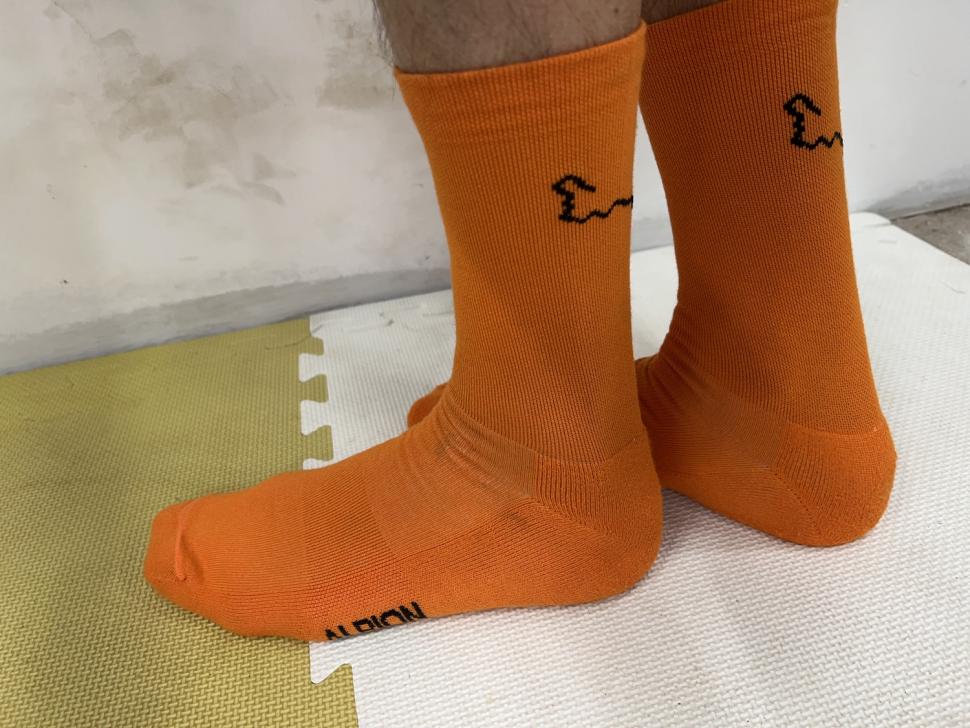 Albion Winter Socks
Albion Winter Socks£20.00
VERDICT:
Brilliant socks for keeping your feet warm and comfortable throughout winter, and in cooler months
Warm
Comfortable
Great fit
Soft
Subtle good looks
A few more colours would be nice
Weight:
61g
Contact:
At road.cc every product is thoroughly tested for as long as it takes to get a proper insight into how well it works. Our reviewers are experienced cyclists that we trust to be objective. While we strive to ensure that opinions expressed are backed up by facts, reviews are by their nature an informed opinion, not a definitive verdict. We don't intentionally try to break anything (except locks) but we do try to look for weak points in any design. The overall score is not just an average of the other scores: it reflects both a product's function and value – with value determined by how a product compares with items of similar spec, quality, and price.
What the road.cc scores meanGood scores are more common than bad, because fortunately good products are more common than bad.
- Exceptional
- Excellent
- Very Good
- Good
- Quite good
- Average
- Not so good
- Poor
- Bad
- Appalling
The Albion Winter Socks are great. They work across a wide range of temperatures, making them ideal from autumn to spring; the synthetic material is soft and stretchy, offering a sublime fit; the cushioned footbed cossets your soles; and the generous height is great for keeping ankles happy on longer legs.
If you're looking for a pair of socks to keep your feet toasty this winter – or, despite the name, much of the year – these Albions should be at the top of your list, especially if, like me, you don't like the feel of merino, as these are totally synthetic: 45% polyester, 35% nylon, 20% elastane.
In a size XXL (EU 44-47/UK 10-13), they fit perfectly on my relatively narrow size 11 feet. They're snug but not tight, the generous amount of elastane offering plenty of stretch. The socks are also available in S/M and L/XL, overall covering sizes from 3 up to 13, which is pretty wide.
The material feels soft, and in the majority doesn't feel bulky, with an almost summer weight to them. Conversely, the padded toe and footbed is very thick and luxurious, and feels like having pillows under your feet. Truly, these are the best winter socks I've ever tried for feel (and I've tested a lot).
There's plenty of height to the Albion socks too, measuring about 15cm from the point at which the cushioned footbed ends on the heel, or about 20cm from the centre point of the heel (Albion doesn't actually state a length). Suffice to say, they are plenty long – some of the longest I've ever tested. If you like more coverage on your ankles/calves, or you've got very long legs, these will suit you very well. They might be a touch too long for shorter legs, mind.
Tested across a range of temperatures, from hovering above the freezing mark, all the way up to the unusually mild weather in the mid teens we've been experiencing in the UK this winter, the socks performed admirably. At the low end, I only needed a pair of thick neoprene overshoes to keep my feet toasty. At the warmer end, my feet were warm but always stayed cool thanks to the excellent breathability of the material. They weren't stinking in the slightest after a long and very wet and muddy ride around the back lanes south of Bristol, either. Top result.
Though people rave about the qualities of merino socks for retaining warmth while allowing your feet to breathe, Albion's animal-free material performs just as well, if not better. And there's very little bulk, too.
Aesthetically, Albion has gone subtle but stylish, with a dual Albion logo on the footbed, and the signature logo line on the upper section. Colours are pretty limited, with black, olive/orange and this bright orange option; a couple of extra colours would be appreciated.
Value
Given the excellent performance these socks offer, the £20 price tag isn't bad, especially when you consider their ability to work across a wide range of temperatures. They would also work well for all kinds of riding, including road, gravel and mountain biking, despite not being advertised as such.
> Suffering cold feet? Find out how to keep your feet warm cycling through the winter
The MAAP Alt_Road Merino Socks perform similarly to the Albion Winter Socks yet cost £5 more (and contain merino wool, which some won't like). Similarly, the Monton Pro Suutu Merino Socks are a decent option at the same price, but they're a bit bulkier.
Conclusion
Overall, the Albions are a great option if you dislike the feel that merino socks offer and you prefer to steer clear of products that use anything animal in them. Even without merino, their performance is brilliant – warm, comfortable, and a great fit.
Verdict
Brilliant socks for keeping your feet warm and comfortable throughout winter, and in cooler months
road.cc test report
Make and model: Albion Winter Socks
Size tested: XXL
Tell us what the product is for
Albion says, "Winter cycling sock constructed using a technical nylon yarn for effective warmth and moisture wicking on your longest winter rides."
Tell us some more about the technical aspects of the product?
Albion lists:
Padded toe and footbed for additional warmth
Albion logo line
Fabric: 45% polyester, 35% nylon, 20% elastane
Made in Italy
Rate the product for quality of construction:
8/10
Material feels thick and well put together.
Rate the product for performance:
8/10
Warm, comfortable and good coverage.
Rate the product for durability:
7/10
So far, so good – only washed a couple of times. One of those was after a very muddy winter ride, where the socks were caked in mud, and they came up looking like new. Slight bobbling on the footbed, but I've seen similar on other socks I've tested, which I believe is simply down to my feet moving around inside the shoes.
Rate the product for fit:
10/10
Perfect fit. Snug on both the foot and calf, but not too tight. Plenty of height for longer legs, or for just more coverage.
Rate the product for sizing:
10/10
Perfect for a size 11, in XXL.
Rate the product for weight:
8/10
Pretty light for warm winter socks.
Rate the product for comfort:
9/10
Thick and luxurious footbed is almost spongey, making it feel very comfortable underfoot.
Rate the product for value:
5/10
How easy is the product to care for? How did it respond to being washed?
After a couple of washes at 30 degrees, the socks still look great. The orange colour hasn't lost any of its zing.
Tell us how the product performed overall when used for its designed purpose
Great fit, very comfortable under the foot and a good length to keep ankles cosy. Surprisingly warm considering they're not the thickest option, and they work well whether the temperatures are near freezing or in the mid teens. Breathability is also very good, and they don't smell after long rides, either.
Tell us what you particularly liked about the product
The cushioning on the sole.
Tell us what you particularly disliked about the product
Nothing.
How does the price compare to that of similar products in the market, including ones recently tested on road.cc?
They're cheaper than the recently reviewed MAAP Alt_Road Merino Sock, being £5 less, and on a par with the Monton Pro Suutu Merino Socks.
Did you enjoy using the product? Yes
Would you consider buying the product? Yes
Would you recommend the product to a friend? Yes
Use this box to explain your overall score
If you dislike the feel that merino socks offer, or you prefer to steer clear of products that use anything animal in them, these are a great option. Even without merino, their performance is brilliant – warm, comfortable, and a great fit. Aesthetically, they're pretty subtle, though the orange definitely gets you noticed.
About the tester
Age: 39
I usually ride: Condor Italia RC custom build My best bike is:
I've been riding for: 10-20 years I ride: A few times a week I would class myself as: Experienced
I regularly do the following types of riding: commuting, touring, club rides, sportives, mtb,
Latest Comments
- Oldfatgit 2 sec ago
I'm sure you were being sarcastic... however ... Lewis Hamilton lives in Monaco. Yet another car driver that doesn't pay any tax
- Rendel Harris 29 min 33 sec ago
I wondered that too, the inventor eulogises the fact that he can just clip in any bike and be off but if there is no crank sensor on the bike it...
- HLaB 1 hour 28 min ago
I think I'll stick to using old bibs that are a bit too worn to where outside 😂
- chrisonabike 1 hour 38 min ago
Of course ... but the current logic seems to favour "I have bought it so therefore it is my right to use it. If I'm not supposed to it shouldn't...
- BikingBud 2 hours 12 min ago
Paddington Harrow Road crash leaves two seriously injured...
- TheBillder 5 hours 37 min ago
I've had (past tense is deliberate) 3 of these over the past 5 years. I'm back here researching for a replacement as my last one broke last week. I...
- chrisonabike 7 hours 39 min ago
And the next time - plead sympathy for your addiction, caused by trauma from your previous "accident"...
- wtjs 7 hours 42 min ago
Butyric Acid... was the most disgusting thing I have ever smelt in the lab...
- ubercurmudgeon 8 hours 13 min ago
Even a stopped clock, etc, etc...
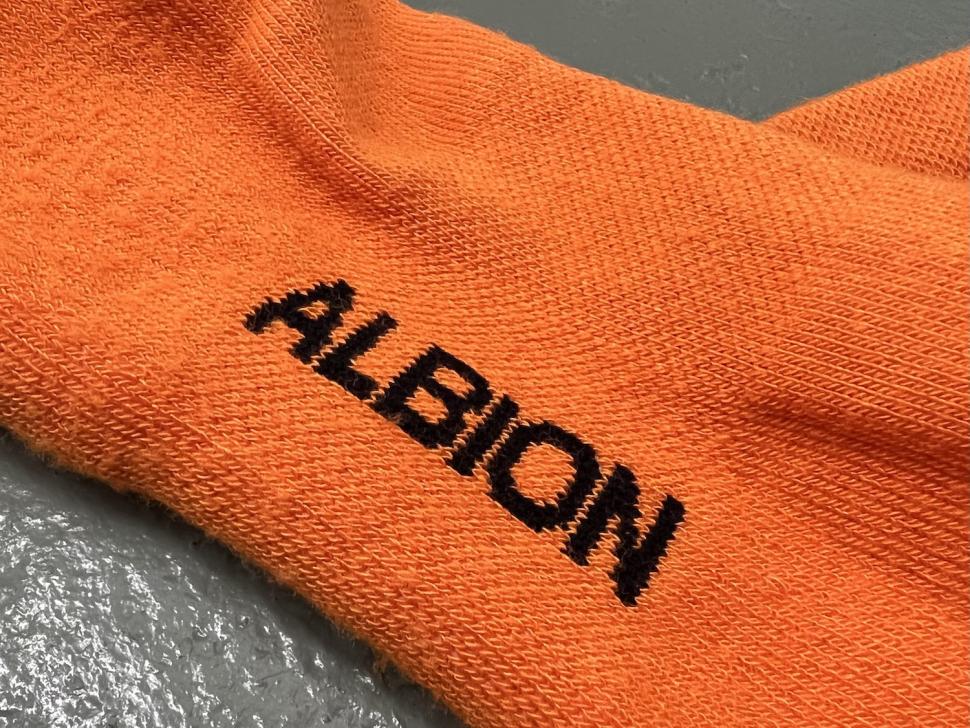







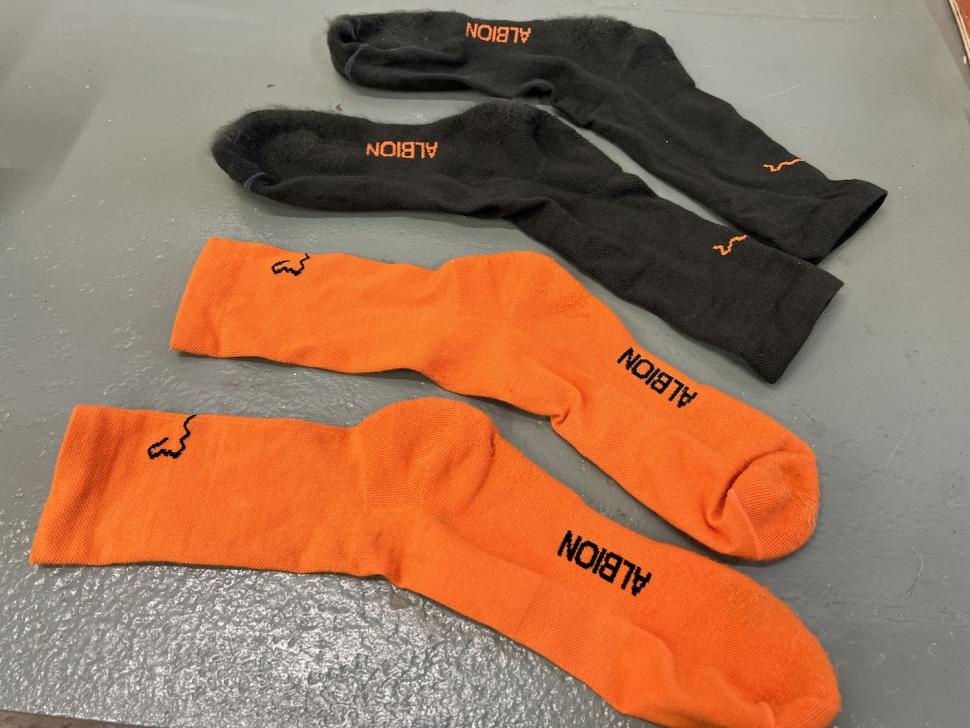
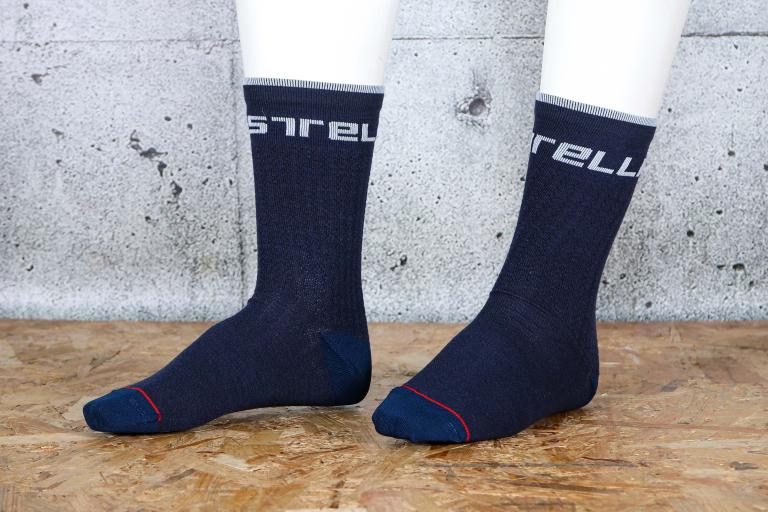
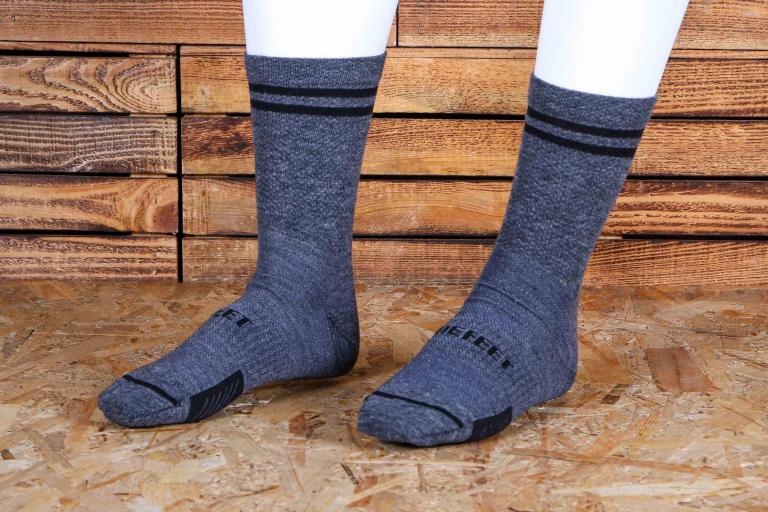
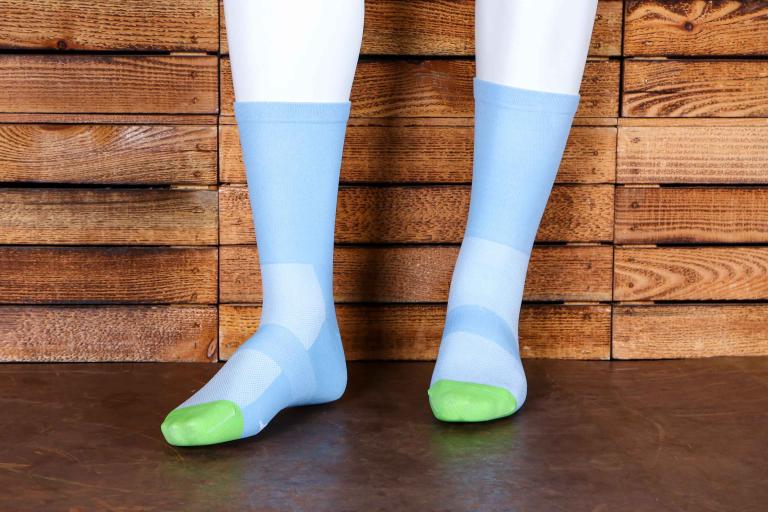
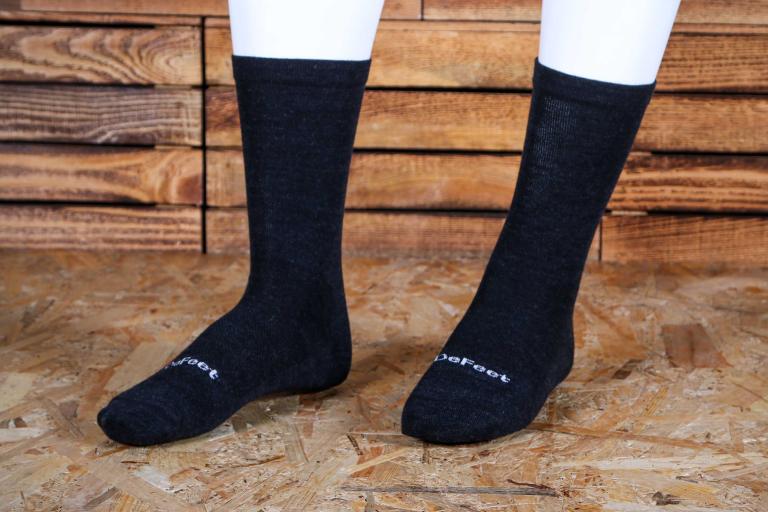
Add new comment
76 comments
Possibly the biggest environmental benefit of this product is that £20 is such a ridiculous price to pay for socks (which aren't even for walking in...) that you can't afford too many pairs. Buying Less Stuff is often the most environmentally-beneficial option.
I rather you didn't use my post(s) as an opportunity to go trolling, thank you.
Amen brother.
Well said sir.
I think that is the perfect response. Firm, but respectful. I liked the 'thank you'.
I think what you meant to say was...
..."Put a sock in it!"
Although the Vimes Boot Theory also works (although probably not in this case if they don't last that long) where you buy the expensive good pair and they last alot longer and alot cheaper in the long run then the 10 pairs of cheap ones you have to purchase over the same period.
Certainly true for some things, although price and durability aren't necessarily correlated (and durability isn't always the most important thing).
Being synthetic, these socks might actually last quite well, certainly compared to wool. Which would burnish their environmental and VfM credentials. I still wouldn't pay £20 though!
Interesting discussion in the comments to this review, obviously we're seeing more brands making environmental and/or sustainability claims these days, which has got us thinking that a feature looking at those issues in more depth would be very timely, so keep your eyes open for that.
Surprising the discussion a pair of socks can generate!
I look forward to the article - although I'm not sure you need go into much more in-depth than concluding that those who want to sell stuff (which is lots of us) will use whatever spiel works best for that purpose.
Sizing up to XXL (UK 10-13) is pretty impressive. Finding decent size socks (and footwear in general) for my 'generous' feet is the bane of my life.
And yes I know, if that's the bane of my life, I have it pretty lucky
Who doesn't like the feel of merino? Strong opinion!
Plastic socks can only be so warm, it's nothing on real wool socks, not to mention the environmental cost of using plastic material.
I wonder what the environmental cost of Merino wool is.
Seriously? Compared to digging up fossil fuels and going through massive environmentally damaging manufacturing processes to make single use plastic thread?
Wool is 100% natural, 100% biodegradable and 100% sustainable, 100% in the UK, as well as being outstanding for keeping your toes warm.
Do you work for the oil/petrochemical industry per chance?
Is it? Isn't wool a by-product of the meat industry? in which case it isn't all of those things.
Let's just break some stuff down
100% natural - this is pretty much meaningless when it comes to any consumer product. In this case the sheep providing the wool have been farmed over millennia involving intensive selective breeding (AKA GM old skool), and wide-scale clearing of forest and subsequent supression of the same.
100% biodegradable - that's a plus. Or rather not a minus at least.
100% sustainable. for this you'd have to define what you mean by both 100%, and sustainable. As mentioned before it is a by-product of the meat industry - ie shearing lambs before they go to slaughter, and ewes throughout their useful (to humans) life before they go for dog food. As wool is so cheap in this country it is barely worth selling, and some producers are throwing it away
100% UK - AS UK wool output is in the low single digits percentage of the world market I'd say that is likely to depend entirely on what you buy.
Outstanding performance - Another plus, but of subjective value and of no consequence to the environment
I don't know what the answer is here, but wool is certainly not a panacea
I don't think Merino comes from sheep used in the meat industry as they're a bit smaller and apparently not as tasty. As far as I know, industrial meat production uses lambs rather than older mutton so I guess that Merino sheep are happy to get shorn every so often rather than getting eaten.
This would tend to increase the environmental footprint of the wool then, as pasture (with associated environmental problems of deforestation, increased water runoff so lowland flooding etc) has to be found for the specific production of wool, rather than it being a spinoff (ha!) product.
Depends on whether they let the sheep roam on rocky hillsides that aren't suitable for farming on - sheep can use land that otherwise isn't used.
The ideology that land that isn't being used for human economic activity has no actual value is one of teh key drivers of environmental degradation.
The ecosystems that are exploited to support sheep farming are still massively damaged, even if we can't see it on an afternoon stroll. The rocky hillsides are often rocky simply because the plants and trees that might otherwise cling to a niche there are destroyed by sheep whilst foraging.
I agree with you that land shouldn't just be valued based on farming, but I'm not convinced that rocky hillsides are that way because of wool production. I'd guess that farming sheep for food is a lot more intensive than wool production and of course people don't buy wool as often as they buy lamb. There's a similar problem with deer roaming the countryside and over-grazing areas as their numbers are growing without any big predators to keep them in check.
Is all rocky hillside rocky cos sheep farming? No clearly not.
Is all land used for sheep farming (rocky or not) catastrophically changed and degraded as a result? Yes, most definitely
You are absolutely correct on deer. See change to the landscape after wolves were reintroduced in yellowstone
https://www.yellowstonepark.com/things-to-do/wildlife/wolf-reintroductio...
The problem isn't deer roaming the countryside per se. It's human activity that results in a viciously degraded environment with no apex predators. The deer are a byproduct of our activities rather than a problem in themselves.
I seem to recall that Merino sheep don't like cold n wet (ironically) so much like cashmere it is all imported into the UK. Now alpacas love UK conditions and their wool makes pretty good sock...
https://www.tellenbymerino.com/
https://www.bamford.com/uk/collections/home-grown-merino
They may not like, but they're damn well gonna put up with it!
I was about to say the same - though its worth noting that the majority of Merino socks are not pure wool as Merino's not great in high wear areas. Unless they are mulesed the sheep are generally treated pretty well as HP notes. They are generally bred & farmed in highland areas so the land clearance issues are less too.
Obviously nothing involving global scale human consumption is zero impact to the planet but I think the intent of the Proaper0's post whilst it could have been phrased better doesnt warrant the giant dogpiling that seems to have followed. Are we twitter now?
Is that sheepdogpiling?
Mulesing is illegal in the UK and New Zealand though it's still used in Australia.
and I don't think this was covered in the recent trade deal with - hang on! Are you trying to create a hybrid Brexit/Animal rights thread of implosion?!
That's the road.cc episode. Squirrels and portable angle grinders !
Pages